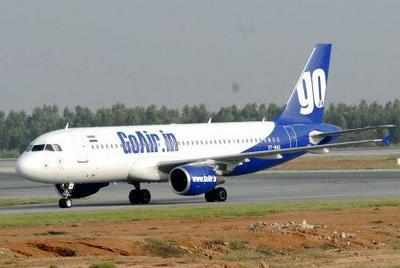- News
- India News
- Collision averted: ATC's 'Indian accent' confused expat pilots?
Trending
This story is from October 26, 2016
Collision averted: ATC's 'Indian accent' confused expat pilots?
"Language issues" - where foreign pilots are unable to correctly understand instructions given by Indian air traffic controllers (ATC), thereby endangering flight safety - are back to haunt our skies.

(File photo)
NEW DELHI: "Language issues" - where foreign pilots are unable to correctly understand instructions given by Indian air traffic controllers (ATC), thereby endangering flight safety - are back to haunt our skies.
Two expat pilots operating a Mumbai-Goa GoAir aircraft have been grounded for not following the instructions given by the Goa ATC on October 22. As a result of this misunderstanding, this Goa-bound aircraft came dangerously close to a SpiceJet plane that had just taken off from Goa and the latter had to take last-minute detour to avoid a mid-air collision.
"DGCA has begun an inquiry and both the expat GoAir pilots have been grounded," said a senior official. Sources say GoAir had wet leased this aircraft (taken an aircraft on rent with the operating crew, including pilots and cabin attendants) from a Polish company.
"There were language issues with the crew possibly not able to understand ATC instructions. The matter was compounded as Goa radar was down that affected instrument landing system. The plane had to land on manual which required more interaction with the ATC," said a source. However, the exact cause of this near-miss will be determined by the DGCA probe.
Since the pilots were from Europe, the problem may have been in comprehending Indian accent as they were new to the country coming on a wet lease.
SpiceJet's flight SG 3604 took off from Goa for Hyderabad and GoAir's G8 141 was on final leg of its Mumbai-Goa flight, descending to land. Seconds after taking off, the traffic collision avoidance system (TCAS) alarm went off in cockpit of the SpiceJet Bombardier Q400, (a turboprop). The system issued a 'resolution advisory' and the pilots took evasive action to avert collision. "The alertness of our crew saved the day," said a SpiceJet senior official.
Two expat pilots operating a Mumbai-Goa GoAir aircraft have been grounded for not following the instructions given by the Goa ATC on October 22. As a result of this misunderstanding, this Goa-bound aircraft came dangerously close to a SpiceJet plane that had just taken off from Goa and the latter had to take last-minute detour to avoid a mid-air collision.
"DGCA has begun an inquiry and both the expat GoAir pilots have been grounded," said a senior official. Sources say GoAir had wet leased this aircraft (taken an aircraft on rent with the operating crew, including pilots and cabin attendants) from a Polish company.
"There were language issues with the crew possibly not able to understand ATC instructions. The matter was compounded as Goa radar was down that affected instrument landing system. The plane had to land on manual which required more interaction with the ATC," said a source. However, the exact cause of this near-miss will be determined by the DGCA probe.
The International Civil Aviation Organisation (ICAO) has established English language proficiency requirements for all pilots operating on international routes, and all ATCs who communicate with foreign pilots. These standards require pilots and air traffic controllers to be able to communicate proficiently using both ICAO phraseology and plain English. Those who do not have English proficiency must acquire it, or risk removal from international flight routes.
Since the pilots were from Europe, the problem may have been in comprehending Indian accent as they were new to the country coming on a wet lease.
SpiceJet's flight SG 3604 took off from Goa for Hyderabad and GoAir's G8 141 was on final leg of its Mumbai-Goa flight, descending to land. Seconds after taking off, the traffic collision avoidance system (TCAS) alarm went off in cockpit of the SpiceJet Bombardier Q400, (a turboprop). The system issued a 'resolution advisory' and the pilots took evasive action to avert collision. "The alertness of our crew saved the day," said a SpiceJet senior official.
End of Article
FOLLOW US ON SOCIAL MEDIA










